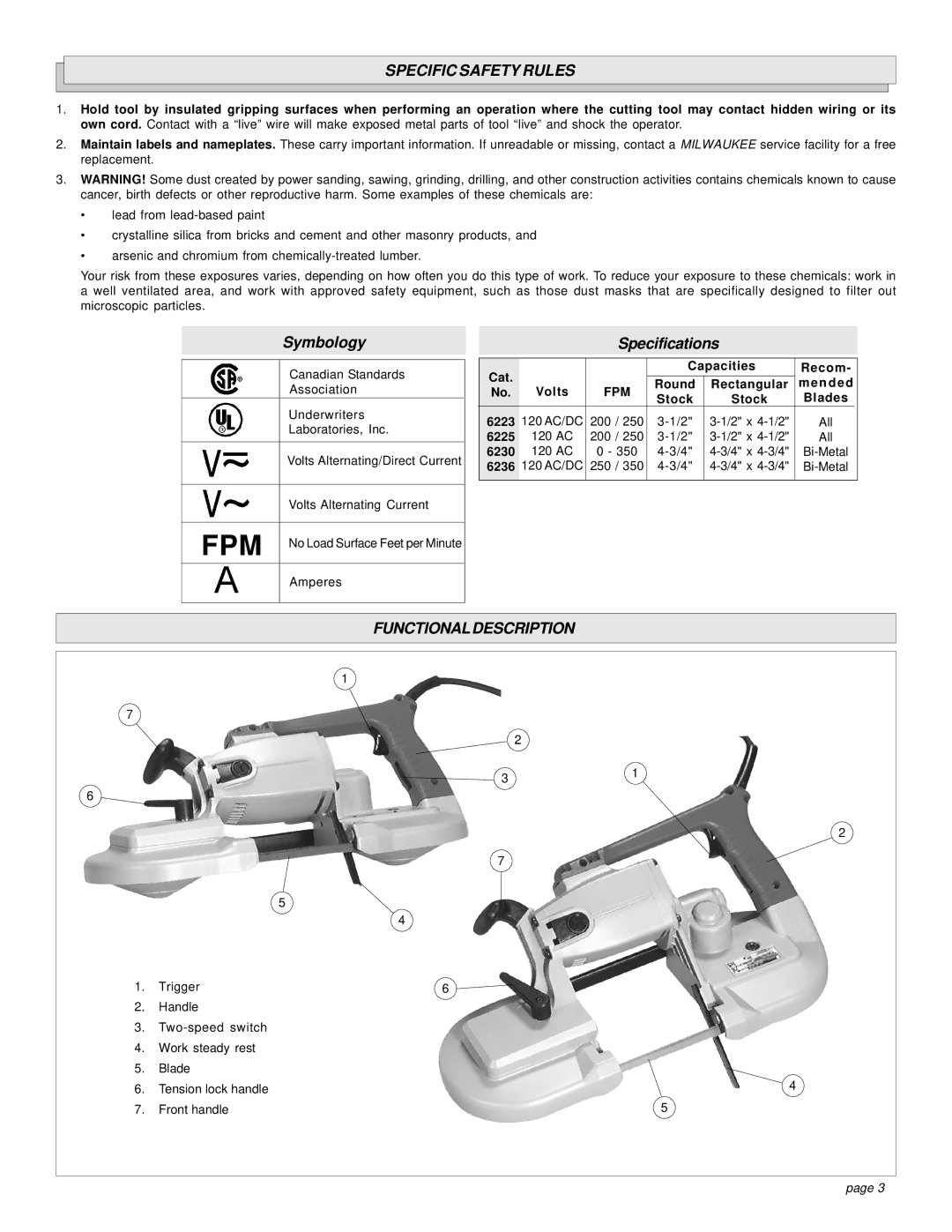
SPECIFIC SAFETY RULES
1.Hold tool by insulated gripping surfaces when performing an operation where the cutting tool may contact hidden wiring or its own cord. Contact with a “live” wire will make exposed metal parts of tool “live” and shock the operator.
2.Maintain labels and nameplates. These carry important information. If unreadable or missing, contact a MILWAUKEE service facility for a free replacement.
3.WARNING! Some dust created by power sanding, sawing, grinding, drilling, and other construction activities contains chemicals known to cause cancer, birth defects or other reproductive harm. Some examples of these chemicals are:
•lead from
•crystalline silica from bricks and cement and other masonry products, and
•arsenic and chromium from
Your risk from these exposures varies, depending on how often you do this type of work. To reduce your exposure to these chemicals: work in a well ventilated area, and work with approved safety equipment, such as those dust masks that are specifically designed to filter out microscopic particles.
SymbologySpecifications
Canadian Standards
Association
Underwriters
Laboratories, Inc.
Volts Alternating/Direct Current
Volts Alternating Current
FPM No Load Surface Feet per Minute
Amperes
Cat. |
|
| Capacities | Recom- | |||
Volts | FPM | Round | Rectangular | m e n d e d | |||
No. | |||||||
Stock | Stock | Blades |
| ||||
|
|
| |||||
6223 | 120 AC/DC | 200 / 250 | All | ||||
6225 | 120 AC | 200 / 250 | All | ||||
6230 | 120 AC | 0 - 350 | |||||
6236 | 120 AC/DC | 250 / 350 | |||||
|
|
|
|
|
|
| |
FUNCTIONAL DESCRIPTION
1
7
2
31
6
2
7
5
4
1. Trigger | 6 |
2.Handle
3.
4.Work steady rest
5.Blade
6. | Tension lock handle | 4 |
7. | Front handle | 5 |
page 3
